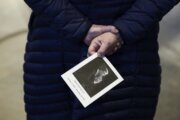A federal appeals court panel on Friday unanimously upheld a law that could lead to a ban on TikTok as soon as next month, handing a resounding defeat to the popular social media platform as it fights for its survival in the U.S.
The U.S. Court of Appeals for the District of Columbia Circuit denied TikTok’s petition to overturn the law — which requires TikTok to break ties with its China-based parent company ByteDance or be banned by mid-January — and rebuffed the company’s challenge of the statute, which it argued had ran afoul of the First Amendment.
“The First Amendment exists to protect free speech in the United States,” said the court’s opinion, which was written by Judge Douglas Ginsburg. “Here the Government acted solely to protect that freedom from a foreign adversary nation and to limit that adversary’s ability to gather data on people in the United States.”
TikTok and ByteDance — another plaintiff in the lawsuit — are expected to appeal to the Supreme Court, though its unclear whether the court will take up the case.
“The Supreme Court has an established historical record of protecting Americans’ right to free speech, and we expect they will do just that on this important constitutional issue,” TikTok spokesperson Michael Hughes said in a statement.
“Unfortunately, the TikTok ban was conceived and pushed through based upon inaccurate, flawed and hypothetical information, resulting in outright censorship of the American people,” Hughes said. Unless stopped, he argued the statute “will silence the voices of over 170 million Americans here in the US and around the world on January 19th, 2025.”
Though the case is squarely in the court system, it’s also possible the two companies might be thrown some sort of a lifeline by President-elect Donald Trump, who tried to ban TikTok during his first term but said during the presidential campaign that he is now against such action.
“He wants to save TikTok,” Rep. Michael Waltz, Trump’s pick for national security adviser, said Friday during an interview on Fox Business.
The law, signed by President Joe Biden in April, was the culmination of a yearslong saga in Washington over the short-form video-sharing app, which the government sees as a national security threat due to its connections to China.
The U.S. has said it’s concerned about TikTok collecting vast swaths of user data, including sensitive information on viewing habits, that could fall into the hands of the Chinese government through coercion. Officials have also warned the proprietary algorithm that fuels what users see on the app is vulnerable to manipulation by Chinese authorities, who can use it to shape content on the platform in a way that’s difficult to detect. The European Union on Friday expressed similar concerns as it investigates intelligence that suggests Russia possibly abused the platform to influence the elections in Romania.
“Today’s decision is an important step in blocking the Chinese government from weaponizing TikTok,” Attorney General Merrick Garland said in a statement Friday.
TikTok, which sued the government over the law in May, has long denied it could be used by Beijing to spy on or manipulate Americans. Its attorneys have accurately pointed out that the U.S. hasn’t provided evidence to show that the company handed over user data to the Chinese government, or manipulated content for Beijing’s benefit in the U.S. They have also argued the law is predicated on future risks, which the Department of Justice has emphasized pointing in part to unspecified action it claims the two companies have taken in the past due to demands from the Chinese government.
Friday’s ruling came after the appeals court panel, composed of two Republicans and one Democrat appointed judges, heard oral arguments in September.
In the hearing, which lasted more than two hours, the panel appeared to grapple with how TikTok’s foreign ownership affects its rights under the Constitution and how far the government could go to curtail potential influence from abroad on a foreign-owned platform. On Friday, all three denied TikTok’s petition.
In the court’s ruling, Ginsburg, a Republican appointee, rejected TikTok’s main legal arguments against the law, including that the statute was an unlawful bill of attainder, or a taking of property in violation of the Fifth Amendment. He also said the law did not violate the First Amendment because the government is not looking to “suppress content or require a certain mix of content” on TikTok.
“Content on the platform could in principle remain unchanged after divestiture, and people in the United States would remain free to read and share as much PRC propaganda (or any other content) as they desire on TikTok or any other platform of their choosing,” Ginsburg wrote, using the abbreviation for the People’s Republic of China.
Judge Sri Srinivasan, the chief judge on the court, issued a concurring opinion.
TikTok’s lawsuit was consolidated with a second legal challenge brought by several content creators — for which the company is covering legal costs — as well as a third one filed on behalf of conservative creators who work with a nonprofit called BASED Politics Inc. Other organizations, including the Knight First Amendment Institute, had also filed amicus briefs supporting TikTok.
“This is a deeply misguided ruling that reads important First Amendment precedents too narrowly and gives the government sweeping power to restrict Americans’ access to information, ideas, and media from abroad,” said Jameel Jaffer, the executive director of the organization. “We hope that the appeals court’s ruling won’t be the last word.”
Meanwhile, on Capitol Hill, lawmakers who had pushed for the legislation celebrated the court’s ruling.
“I am optimistic that President Trump will facilitate an American takeover of TikTok to allow its continued use in the United States and I look forward to welcoming the app in America under new ownership,” said Republican Rep. John Moolenaar of Michigan, chairman of the House Select Committee on China.
Democratic Rep. Raja Krishnamoorthi, who co-authored the law, said “it’s time for ByteDance to accept” the law.
To assuage concerns about the company’s owners, TikTok says it has invested more than $2 billion to bolster protections around U.S. user data.
The company has also argued the government’s broader concerns could have been resolved in a draft agreement it provided the Biden administration more than two years ago during talks between the two sides. It has blamed the government for walking away from further negotiations on the agreement, which the Justice Department argues is insufficient.
Attorneys for the two companies have claimed it’s impossible to divest the platform commercially and technologically. They also say any sale of TikTok without the coveted algorithm — the platform’s secret sauce that Chinese authorities would likely block under any divesture plan — would turn the U.S. version of TikTok into an island disconnected from other global content.
Still, some investors, including Trump’s former Treasury Secretary Steven Mnuchin and billionaire Frank McCourt, have expressed interest in purchasing the platform. Both men said earlier this year that they were launching a consortium to purchase TikTok’s U.S. business.
This week, a spokesperson for McCourt’s Project Liberty initiative, which aims to protect online privacy, said unnamed participants in their bid have made informal commitments of more than $20 billion in capital.
Copyright © 2025 The Associated Press. All rights reserved. This material may not be published, broadcast, written or redistributed.







